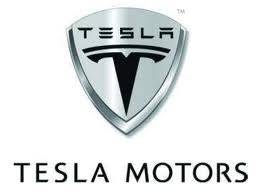I had not been following Tesla Motors Inc (NASDAQ:TSLA) very closely leading up to the stock’s sharp rise, but with all the hype surrounding the company, I had to look at it a bit closely. As pundits touted the company as the fourth great U.S. automaker, and investors cheered over the recent quarter’s “profitability,” I just had to learn about what I was missing. Upon completing a bit of research, I can safely say I‘m not buying the hype.
ZEV credits fueling profit
Tesla stock recently rallied as the company reported its first quarter of profitability with GAAP net income of just over $11 million. However, buried below the headlines is a discussion of revenue and the $68 million of revenue generated by selling zero emission vehicle, or ZEV, credits to other automakers.
Due to recent legislation, automakers will be required to have ZEV credits either by manufacturing ZEV vehicles or purchasing them from other manufacturers. The market for ZEV’s is expected to decline as the Nissan Leaf becomes widely available and Nissan floods the market with ZEV credits. Tesla Motors Inc (NASDAQ:TSLA) acknowledges that they plan to have gross margins of 25% without any ZEV credits. While that claim remains to be seen, the ZEV revenue in the current quarter needs to be scrutinized.
While Tesla conveniently mentioned that ZEV credits accounted for 12% of revenue, let’s call a spade a spade. The ZEV revenue essentially accounted for $68 million to the bottom line. The credits resulted from vehicle production, so all associated costs were already incurred in production. Assuming no costs for the revenue, the company had a net loss of $56.75 million, or $0.49 per basic share. Even at a 50% margin on these revenue, the company had a net loss of $22.75 million, or $0.20 per basic share. While Tesla Motors Inc (NASDAQ:TSLA) eported a profit, the sources of the profit are fleeting and will likely not be around much longer as the electric vehicle market becomes more competitive.
Benefits of ownership
After looking at the earnings release, I wanted to better understand Tesla’s value proposition. Their annual report indicates that a Tesla owner would save approximately $1,800 a year in fuel costs over a six year period. The specifics on their calculation can be found in the report. They also think the cost of maintenance should be lower, but they offer no way to quantify the savings.
Tesla also quotes all of its vehicle prices after the $7,500 federal electric vehicle credit. While there are currently no income limits on the credit, the future of the credit is not guaranteed given current government constraints.
Next, I looked at if I could be environmentally conscious without purchasing an electric vehicle. I stumbled upon carbonfund.org, and learned that for $54.42 a year, I could offset the carbon footprint of a full-size vehicle getting 19mpg-28mpg driven 12,000 miles per year.






